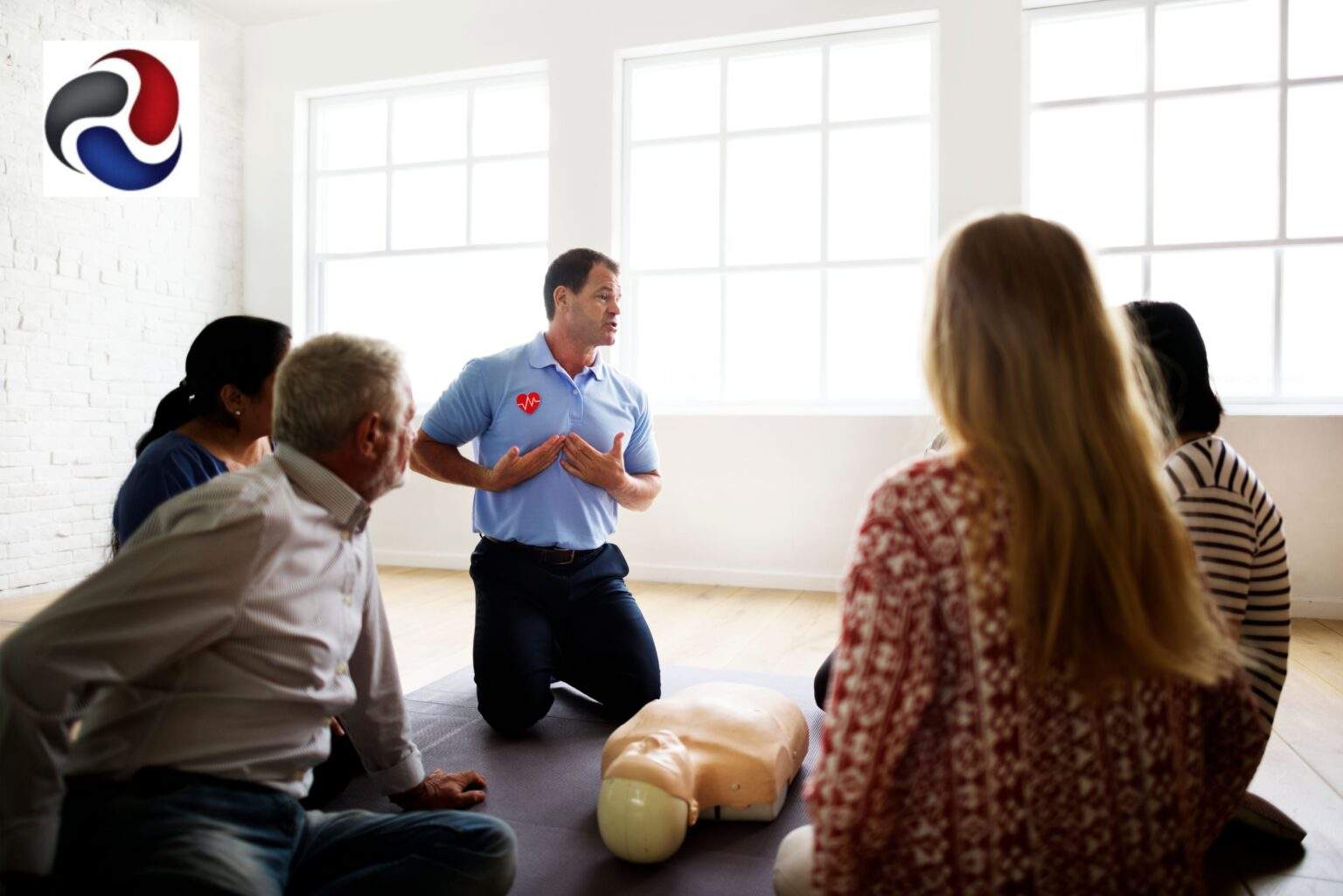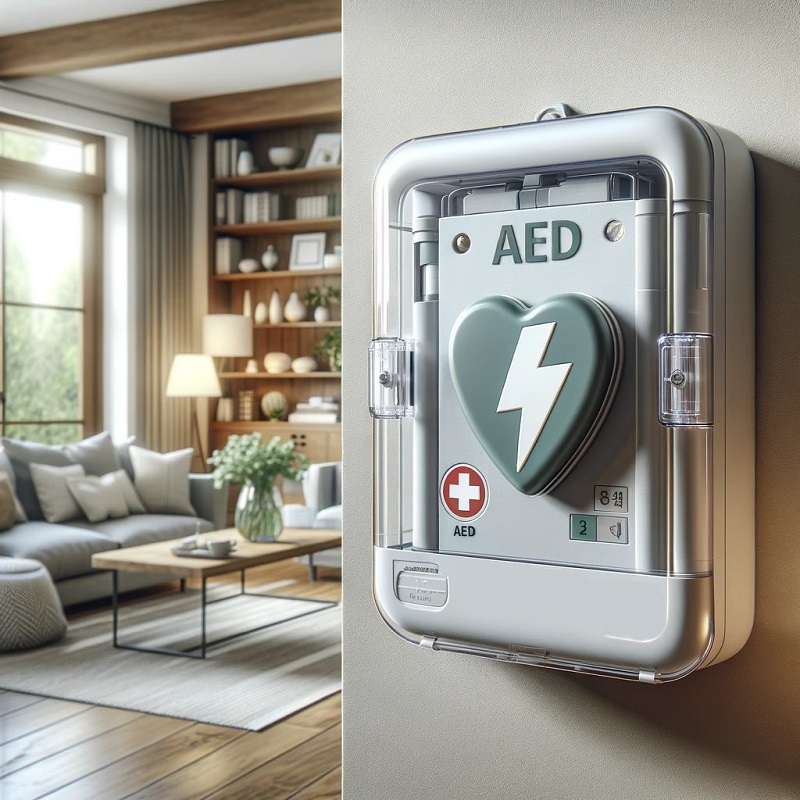AED Laws in Tampa Florida
- by Sduehring
Table of Contents

Understanding AED Laws in Florida: A Focus on Tampa
Automated External Defibrillators (AEDs) are vital life-saving devices for individuals experiencing sudden cardiac arrest (SCA). In Florida, specific regulations govern the deployment, use, and maintenance of AEDs to ensure public safety. For businesses, organizations, and communities in Tampa, understanding these laws and how they integrate with CPR training can create safer environments and potentially save lives.
The Importance of AEDs
Sudden cardiac arrest is a leading cause of death in the United States, with over 356,000 out-of-hospital cases annually. Quick access to an AED and immediate CPR can significantly increase the survival rate. When an AED is used within the first few minutes of SCA, the survival rate can be as high as 70%.
Florida’s regulations aim to make AEDs more accessible and ensure that individuals are prepared to use them effectively in emergencies. Compliance with these laws is critical in Tampa, where the mix of urban density and vibrant public spaces necessitates robust safety measures.
Florida AED Laws Overview
Florida Statutes Chapter 401.2915 outlines key regulations regarding AEDs, emphasizing their critical role in saving lives and promoting public safety. Key elements include:
- Good Samaritan Protection:
- Individuals who use an AED in good faith during an emergency are protected from liability, provided they act reasonably and without negligence.
- This protection encourages bystanders to act without fear of legal repercussions.
- Encouragement for Training:
- The Legislature strongly encourages individuals to complete training in lifesaving first aid, which includes cardiopulmonary resuscitation (CPR) and demonstrated proficiency in AED use. This ensures that users can act confidently and effectively.
- Mandatory AED Placement and Notification:
- Specific locations, such as public schools, fitness centers, and government buildings, must have AEDs on-site. AEDs are also required in public high schools that are members of the Florida High School Athletic Association (FHSAA), licensed assisted living facilities with 17 or more beds, and all dental offices.
- AED owners are encouraged to notify their local emergency medical services (EMS) medical director or public safety answering point of the device’s location to improve emergency response coordination.
- Emergency System Activation:
- Anyone using an AED must activate the emergency medical services system immediately to ensure professional medical assistance arrives promptly.
- Tampering Provisions:
- Intentionally tampering with or rendering an AED inoperative, except during maintenance or as authorized, is a first-degree misdemeanor under Florida law.
Key Legislative Updates
- Florida Statutes – 1006.165:
- FHSAA members must have an operational AED on school grounds, accessible for athletic contests, practices, workouts, or conditioning sessions, including activities outside the school year.
- By June 1, 2021, a school employee or volunteer trained in CPR/AED use must be present at all athletic events.
- Schools must register AED locations with the local EMS medical director and notify trained staff annually of AED locations.
- Florida Statutes – 1003.453:
- Encourages school districts to provide first aid and CPR training, including AED use, starting in grade 6 and every two years thereafter. Training should be evidence-based and include hands-on practice.
- Florida Administrative Code R. 64B5-17.015:
- All dental offices are required to have an AED on-site.
- West’s F.S.A. §429.255:
- Mandates AEDs in assisted living facilities with 17 or more beds.

Tampa-Specific Considerations
Tampa, a city known for its bustling downtown, active tourism industry, and vibrant community events, places significant emphasis on public safety. Local organizations and businesses in Tampa can benefit from aligning their practices with Florida’s AED laws to enhance safety and meet community expectations.
Popular AED Locations in Tampa:
- Public Spaces: Tampa’s Riverwalk, Curtis Hixon Waterfront Park, and other high-traffic areas often host large gatherings. AEDs in these locations ensure swift response in emergencies.
- Sports Facilities: Locations such as Amalie Arena and Raymond James Stadium are essential for AED placement, given their high foot traffic and active environments.
- Educational Institutions: Schools in Tampa’s Hillsborough County must comply with Florida’s AED requirements, ensuring staff and students are prepared for emergencies.
Local Ordinances:
While Florida laws govern AED use across the state, Tampa may have additional local guidelines or recommendations for businesses and organizations. For example, entities hosting events with large crowds are encouraged to ensure AED availability and onsite CPR training.
Benefits of Onsite CPR Training:
- Immediate Response Readiness:
- Training ensures that individuals can perform CPR and use an AED promptly, bridging the gap before emergency medical services (EMS) arrive.
- Legal Compliance:
- Although training is not mandatory in Florida, it demonstrates a proactive approach to safety and aligns with best practices.
- Workplace Safety:
- Businesses in Tampa can reduce liability risks and enhance employee well-being by offering CPR and AED training sessions.
- Community Confidence:
- Training programs foster a sense of security among residents and visitors, especially in areas with high foot traffic.
How to Arrange Training:
- Recognizing cardiac emergencies.
- Performing high-quality CPR.
- Using an AED effectively.
- Adhering to legal and safety protocols.
Best Practices for AED Program Management in Tampa
Implementing an AED program involves more than just purchasing a device. Proper management ensures compliance with Florida laws and maximizes the device’s life-saving potential.
Steps to Effective AED Program Management:
- Device Placement:
- Position AEDs in accessible locations within three minutes of potential users.
- Use clear signage to identify AED locations.
- Routine Maintenance:
- Schedule regular checks to ensure AEDs are operational and compliant with manufacturer guidelines.
- Replace batteries and pads before expiration dates.
- Training and Drills:
- Conduct periodic training and mock drills to keep skills sharp.
- Encourage staff participation to build confidence in using AEDs during emergencies.
- Compliance Documentation:
- Maintain records of AED maintenance, inspections, and training sessions to demonstrate compliance during audits or inspections.
- Partnerships with Professionals:
- Collaborate with organizations like EMC CPR & Safety Training, LLC, to manage your AED program effectively. These partnerships ensure your devices are always ready and your team is trained.

Why Tampa Businesses Should Prioritize AEDs and CPR Training
Businesses in Tampa have a unique opportunity to showcase their commitment to public safety by investing in AEDs and CPR training. Doing so meets legal and ethical obligations and enhances brand reputation and customer trust.
Industries That Benefit Most:
- Hospitality and Tourism: With millions of visitors each year, Tampa’s hotels, restaurants, and attractions can enhance guest safety by having AEDs onsite.
- Corporate Offices: High-rise buildings and office parks in downtown Tampa can provide peace of mind to employees and visitors by integrating AEDs into their emergency response plans.
- Retail and Entertainment: Shopping centers like International Plaza and Bay Street are prime locations for AED deployment, ensuring quick access in busy areas.
- Sports and Recreation: Gyms, yoga studios, and other fitness facilities must comply with Florida’s AED placement requirements and can further enhance safety with CPR training.
Conclusion
Understanding and adhering to AED laws in Tampa Florida is crucial for ensuring public safety and legal compliance. Whether you are in Tampa or Miami, where dynamic communities and vibrant public spaces are integral to daily life, the role of AEDs and CPR training cannot be overstated.
Tampa businesses, schools, and organizations can create a culture of preparedness and life-saving readiness by partnering with expert providers and prioritizing on-site training. Whether it’s a bustling office, a school campus, or a community event, an AED program and trained responders ensure that help is always within reach.
For those in Tampa looking to elevate their safety standards, EMC CPR & Safety Training, LLC offers tailored solutions to meet your AED and CPR training needs. Don’t wait for an emergency to act—be proactive and prioritize safety today, and contact us today.
Serving cities nationwide including Tampa, New York City, Chicago, Houston, Denver, and Seattle.
Disclaimer
All the information on this website – www.emccprtraining.com – is published in good faith and for general information purposes only. EMC CPR & Safety Training, LLC does not make any warranties about the completeness, reliability, and accuracy of this information. Any action you take based on the information you find on this website (EMC CPR & Safety Training, LLC) is strictly at your own risk. EMC CPR & Safety Training, LLC will not be liable for any losses and/or damages in connection with using our website.
You can visit other websites on our website by following hyperlinks to such external sites. While we strive to provide only quality links to useful and ethical websites, we have no control over the content and nature of these sites. These links to other websites do not imply a recommendation for all the content found on these sites. Site owners and content may change without notice and may occur before we have the opportunity to remove a link which may have gone ‘bad’.
Please also be aware that when you leave our website, other sites may have different privacy policies and terms beyond our control. Please check the Privacy Policies of these sites and their “Terms of Service” before engaging in any business or uploading any information.
By using our website, you consent to our disclaimer and agree to its terms.






